Construction: An Introduction
Construction is the process of building or assembling infrastructure, buildings, or other structures. It involves the use of various materials, tools, and techniques to create spaces that serve specific purposes, such as residential, commercial, or industrial use.
Key Concepts
- Materials: Construction involves the use of materials such as wood, concrete, steel, and glass. These materials are chosen based on their strength, durability, and suitability for the intended purpose of the structure.
- Tools and Equipment: Construction also requires the use of various tools and equipment, including hammers, saws, drills, and heavy machinery such as cranes and excavators.
- Techniques: Different construction techniques are used for different types of structures. These techniques may include framing, masonry, welding, and more.
- Safety: Safety is a critical aspect of construction, and workers must adhere to safety protocols to prevent accidents and injuries.
Study Guide
To understand construction better, it's important to study the following topics:
- Types of Construction: Learn about different types of construction, such as residential, commercial, and industrial construction. Understand the unique requirements and challenges associated with each type.
- Materials and Their Uses: Explore the properties of common construction materials and how they are used in building structures.
- Tools and Equipment: Familiarize yourself with the various tools and equipment used in construction and their specific purposes.
- Construction Techniques: Study different construction techniques and how they are applied in real-world construction projects.
- Safety in Construction: Understand the importance of safety measures and protocols in construction, including the use of personal protective equipment and adherence to safety regulations.
By mastering these topics, you will gain a comprehensive understanding of construction and the factors that contribute to successful building projects.
.◂Science Worksheets and Study Guides Third Grade. Science in our world - 3rd gr.
Study Guide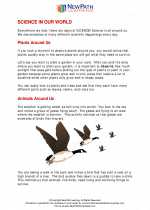 Science in our world - 3rd gr.
Science in our world - 3rd gr.  Worksheet/Answer key
Worksheet/Answer key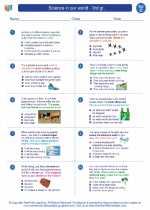 Science in our world - 3rd gr.
Science in our world - 3rd gr.  Worksheet/Answer key
Worksheet/Answer key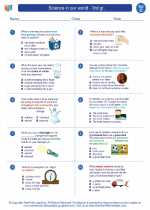 Science in our world - 3rd gr.
Science in our world - 3rd gr.  Worksheet/Answer key
Worksheet/Answer key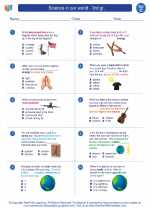 Science in our world - 3rd gr.
Science in our world - 3rd gr.  Worksheet/Answer key
Worksheet/Answer key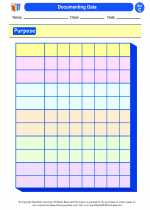 Documenting Data
Documenting Data 

 Worksheet/Answer key
Worksheet/Answer key
 Worksheet/Answer key
Worksheet/Answer key
 Worksheet/Answer key
Worksheet/Answer key
 Worksheet/Answer key
Worksheet/Answer key

The resources above cover the following skills:
History and Nature of Science: A student should understand the history and nature of science. A student who meets the content standard should:
Develop an understanding that historical perspectives of scientific explanations demonstrate that scientific knowledge changes over time, building on prior knowledge.
Develop an understanding that scientific knowledge is ongoing and subject to change as new evidence becomes available through experimental and/or observational confirmation(s).